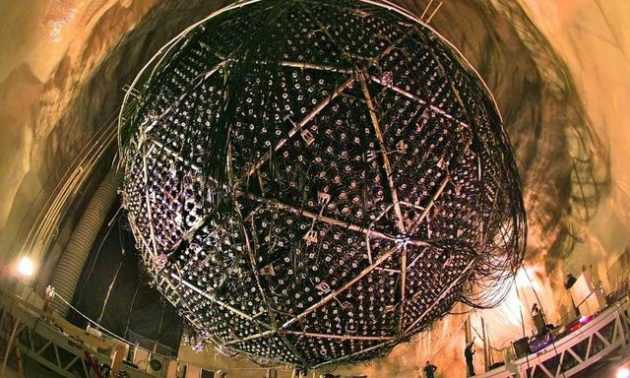China to build neutrino observatory 700 meters underground
16 January, 2019

Excavation and construction of a bunker some 700 meters underground for a state-of-the-art observatory of neutrinos has been completed in southern China.
The laboratory will be up and running after equipment installation and trial runs are completed in 2021, according to Xinhua.
The Jiangmen Underground Neutrino Observatory in Guangdong province is 700 meters beneath the ground, way deeper than most subway stations and train tunnels, to avoid disturbance and noise from cosmic rays. It will host a spheroidal facility with a diameter of 35 meters and 20,000 tons in weight.
The gigantic underground ball will be assembled with numerous components attached with super acute detectors to catch and analyze neutrinos.
The little-known city of Jiangmen was chosen because of its proximity to two massive nuclear plants in neighboring Yangjiang and Taishan counties, so as to study neutrinos sent from these reactors.
The labyrinth-like lab is a joint research project with participation by more than 600 scientists from 17 countries. It is expected to accelerate China’s cosmological research and determine the neutrino mass hierarchy. Researchers also hope to measure neutrino oscillations more accurately.
“Neutrinos are one of the fundamental particles that make up the universe…. The findings of the neutrino mass hierarchy will help us learn more about the universe, such as the evolution of stars and black holes as well as the detailed structure of the core of earth,” said Xu Donglian, a physicist with Shanghai Jiaotong University and a member of the lab program.
Neutrinos are among the least known particles as they interact only via weak subatomic force and gravity.
Three types of neutrinos are currently known but many more – theoretically proven to be in existence – wait to be discovered, and other aspects of study, such as the precise values of their masses, their mass hierarchy and whether they are antiparticles of each other, also need to be further clarified.
The team will also conduct research on other frontiers, such as supernova neutrinos, atmospheric neutrinos, solar neutrinos, earth neutrinos, sterile neutrinos, nuclear decay and detection of dark matter.
“After experiments start in our Jiangmen lab, we will be able to unravel the mystery of the universe and answer a number of fundamental questions related to cosmology and physics, such as the neutrino mass hierarchy and the supernova burst mechanism,” said Wang Yifang, director of the Jiangmen program as well as the Chinese Academy of Sciences’ Institute of High Energy Physics.
TAG(s):
